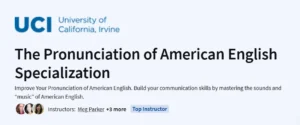What will you learn in Generative AI Assistants Specialization Course
Understand the foundations of generative AI assistants and how they differ from traditional assistants
Build and evaluate intelligent assistants using tools like LLMs, APIs, and retrieval-augmented generation (RAG)
Implement memory, tool use, and planning capabilities in AI assistant workflows
Explore prompt engineering strategies for guiding assistant behavior and responses
Apply ethical principles and design considerations in building AI-powered assistants
Deploy real-world assistants for tasks like writing, research, coding, and customer interaction
Program Overview
Course 1: Introduction to Generative AI Assistants
⏳ 1 week
Topics: What are generative AI assistants, key components, and real-world examples
Hands-on: Explore assistant architecture including context windows, memory, and conversation loops
Course 2: Tools, Memory, and Retrieval
⏳ 1 week
Topics: Tool use, vector databases, retrieval-augmented generation (RAG), memory handling
Hands-on: Connect an AI assistant to external tools and build memory-enhanced responses
Course 3: Prompting and Planning
⏳ 1 week
Topics: Prompt engineering, ReAct framework, multi-step task decomposition
Hands-on: Write prompts and build assistants that can plan and execute tasks step-by-step
Course 4: Assistant Applications and Deployment
⏳ 1 week
Topics: Use cases in business, education, coding, and research; deployment strategies
Hands-on: Build and test a fully functioning generative assistant for a real-world scenario
Course 5: Evaluation, Ethics, and Design Considerations
⏳ 1 week
Topics: Evaluation metrics, bias, safety, transparency, user-centered design
Hands-on: Test your assistant and implement features to ensure responsible use
Get certificate
Job Outlook
Generative AI assistants are rapidly transforming industries like education, customer support, and product development
Skills in building AI assistants are in demand for roles like Prompt Engineer, AI Product Designer, and AI Automation Specialist
Companies seek professionals who can integrate LLM-based assistants into enterprise workflows
Freelancers and developers can build custom assistants for clients using emerging tools and APIs
Specification: Generative AI Assistants Specialization Course
|
FAQs
- No prior AI or cloud experience required.
- Introduces AI, machine learning, computer vision, and NLP concepts.
- Teaches using Microsoft Azure services and tools.
- Covers responsible AI principles: fairness, transparency, and privacy.
- Provides beginner-friendly hands-on exercises on Azure platform.
- Exam-focused lessons on AI concepts and Azure services.
- Includes sample questions and practice assessments.
- Covers exam structure and key topic review.
- Teaches practical application with Azure Cognitive Services and ML Studio.
- Offers strategies for successful exam preparation.
- Core course learning can be done with free Azure account options.
- Certain services (like premium Cognitive Services) may require paid access.
- Hands-on labs may encourage optional paid Azure subscriptions.
- Focus remains on AI concepts and exam preparation rather than cost-heavy usage.
- Alternative free trials can be used for practice.
- Teaches AI fundamentals applicable across roles.
- Introduces cloud-based AI tools without requiring programming.
- Covers AI ethics, fairness, and transparency for business applications.
- Helps pivot into AI-adjacent roles in IT and business.
- Provides practical skills for AI-supported decision-making.
- Hands-on exercises with Azure Cognitive Services and ML Studio.
- Build simple AI models and chatbots in a guided environment.
- Learn deployment and monitoring basics for AI solutions.
- Covers evaluation of AI models for fairness and reliability.
- Develop foundational skills to support AI projects in professional settings.





